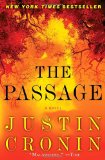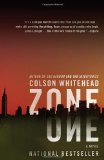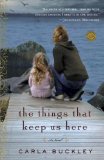Summary | Excerpt | Reviews | Beyond the book | Read-Alikes | Genres & Themes | Author Bio

First, the unthinkable: a security breach at a secret U.S. government facility unleashes the monstrous product of a chilling military experiment. Then, the unspeakable: a night of chaos and carnage gives way to sunrise on a nation, and ultimately a world, forever altered.
“It happened fast. Thirty-two minutes for one world to die, another to be born.”
First, the unthinkable: a security breach at a secret U.S. government facility unleashes the monstrous product of a chilling military experiment. Then, the unspeakable: a night of chaos and carnage gives way to sunrise on a nation, and ultimately a world, forever altered. All that remains for the stunned survivors is the long fight ahead and a future ruled by fear—of darkness, of death, of a fate far worse.
As civilization swiftly crumbles into a primal landscape of predators and prey, two people flee in search of sanctuary. FBI agent Brad Wolgast is a good man haunted by what he’s done in the line of duty. Six-year-old orphan Amy Harper Bellafonte is a refugee from the doomed scientific project that has triggered apocalypse. He is determined to protect her from the horror set loose by her captors. But for Amy, escaping the bloody fallout is only the beginning of a much longer odyssey—spanning miles and decades—towards the time and place where she must finish what should never have begun.
With The Passage, award-winning author Justin Cronin has written both a relentlessly suspenseful adventure and an epic chronicle of human endurance in the face of unprecedented catastrophe and unimaginable danger. Its inventive storytelling, masterful prose, and depth of human insight mark it as a crucial and transcendent work of modern fiction.
There's no getting around it; Justin Cronin's first novel will give fans of Stephen King's classic, The Stand an acute sense of déjà vu, with its notable similarities in plot, characters and settings. What makes this arguably forgivable is that Cronin's writing style is more refined than King's, and his characters more likable and well-rounded. Despite the derivations, I was able to enjoy The Passage in its own right.... it has depth, literary appeal, mysticism, creepy, low-key horror (it isn't a gore-fest), a good vs. evil theme, and interesting characters. It is not so much a "vampire" book as it is a story about human beings in a post-apocalyptic battle for survival...continued
Full Review
(752 words)
This review is available to non-members for a limited time. For full access,
become a member today.
(Reviewed by Cindy Anderson).
The vampires of folklore are hideous and frightening figures, walking corpses that feast on the blood of the living. But during the Victorian era, writers began to create stories about a different kind of vampire, typified by an aristocrat who represented both death and sexual desire, a possible reaction to the repressiveness of the times. An early example of such a tale is John Polidori's The Vampyre, (1819) in which the title character, Lord Ruthven, is a seductive nobleman.
 Another example is Sheridan Le Fanu's Carmilla (1871), notable because it features a sexy female vampire who seduces and drinks the blood of a female victim. Yet, the most famous and influential of all 19th century vampire fiction was Bram Stoker's ...
Another example is Sheridan Le Fanu's Carmilla (1871), notable because it features a sexy female vampire who seduces and drinks the blood of a female victim. Yet, the most famous and influential of all 19th century vampire fiction was Bram Stoker's ...
This "beyond the book" feature is available to non-members for a limited time. Join today for full access.

If you liked The Passage, try these:

by Colson Whitehead
Published 2012
Both spine chilling and playfully cerebral, Zone One brilliantly subverts the genre's conventions and deconstructs the zombie myth for the twenty-first century.

by Carla Buckley
Published 2011
How far would you go to protect your family?
Carla Buckley’s poignant debut raises important questions to which there are no easy answers, in an emotionally riveting tale of one family facing unimaginable stress.